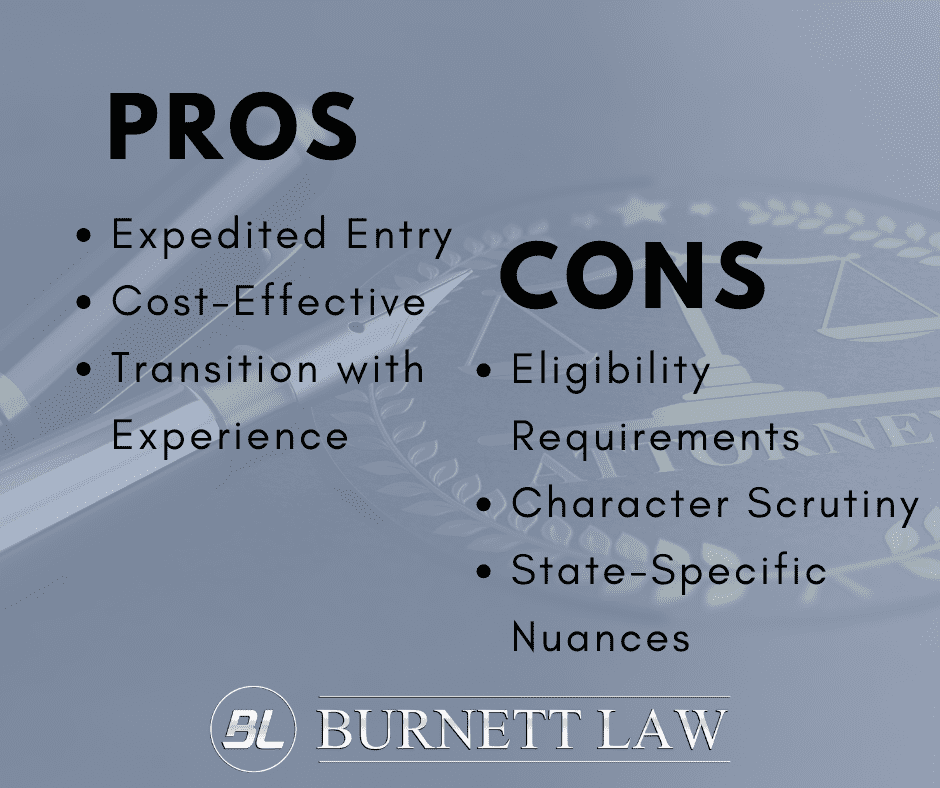Legal Reciprocity in Tennessee: How to gain admission to the Tennessee Bar
Data from the US Census Bureau shows that Tennessee ranked seventh out of all 50 states in population growth from 2021 to 2022, adding 82,988 residents in just one year. That’s 266 people per day moving to Tennessee!
I can’t speak for the whole state, but I can speak for Crossville attorneys when I say, we are excited about your new journey. As new facilities, schools, and communities expand each day, so does the job market and opportunity to practice law in Tennessee. If you’re an attorney licensed in another state and you aspire to practice law in Tennessee without taking the bar exam, the pathway you’re looking for is called “reciprocity,” also known as “admission by comity.”

H2: The Process of Admission by Comity
There are two primary pathways to gain admission to the Tennessee Bar: passing the bar exam or seeking admission by reciprocity. Reciprocity offers experienced attorneys the opportunity to transition smoothly into the legal community without having to take the Tennesse Bar. To qualify for admission by comity, or reciprocity, you must meet certain criteria:
- Be a licensed attorney in good standing in another U.S. jurisdiction.
- Hold a Juris Doctor (J.D.) degree from an ABA-accredited law school.
- Demonstrate ethical conduct and clean discipline in your current jurisdiction.
In order to apply for reciprocity, Visit the Board of Law Examiners website to access the application for admission by comity. There you will find detailed instructions, forms, and requirements. Ensure that you submit all required documents, including certificates of good standing from your current and prior jurisdictions, transcripts, and any other documentation requested by the Board.
As part of the reciprocity process, you’ll undergo a character and fitness evaluation. The Board of Law Examiners will assess your moral character, integrity, and fitness to practice law in Tennessee. This evaluation often includes an interview, references, and additional documentation to verify your qualifications.
If your application is approved, you will receive a Certificate of Reciprocal Admission. This is the certificate that will allow you to practice law in Tennessee, without retaking the Bar exam.
Factors to Consider When Choosing Reciprocity
Let’s first consider the Pros and Cons of this route. Reciprocity offers a quicker route to practicing law in Tennessee, allowing you to start your legal career sooner. This method is often more cost-effective in comparison to taking the Bar Exam, as you avoid bar exam fees and study-related expenses.
On the other hand, the character and fitness evaluation can be rigorous. Any blemishes on your disciplinary record may affect your eligibility. You must also study Tennessee-specific laws and regulations, which can pose a learning curve. After gaining admission through reciprocity, you’ll be required to meet Tennessee’s Continuing Legal Education (CLE) requirements, which can include a certain number of CLE credits.

Additional Considerations
Research the legal market in Tennessee, including job opportunities and demand for attorneys in your practice area. East Tennessee is an especially booming area at the time of writing this; Burnett Law is hiring experienced and compassionate attorneys to add to the Crossville office.
Establishing professional connections in the community is crucial to help you access job openings and build a client base. Keep in mind, your chosen practice area may influence your decision. If you have expertise in an area where Tennessee has a high demand, reciprocity may be advantageous.
As experienced attorneys with over 26 years in the Crossville community, we believe reciprocity acknowledges your legal expertise and allows you to seamlessly join the Tennessee legal community. If you’re an experienced attorney moving to Crossville, Burnett Law would love to speak with you!
Conclusion
Transferring your attorney license to Tennessee is a significant career move. Whether you choose to take the bar exam or pursue admission by comity, thorough preparation and understanding of the process are essential. Reciprocity offers an expedited and cost-effective pathway for experienced attorneys to practice law in Tennessee. While it comes with eligibility criteria, character and fitness scrutiny, and the need to adapt to state-specific nuances, it remains a valuable option for those seeking to establish their legal careers in the Volunteer State. By understanding the intricacies of reciprocity and diligently preparing your application, you can navigate the complexities and embark on a successful legal journey in Tennessee.
Disclaimer: The information contained in this blog or on this website is provided for informational purposes only, and should not be construed as legal advice on any specific subject matter. No person should act or refrain from acting due to any content included in the site without seeking legal or other professional advice on the particular facts and circumstances at issue from an attorney licensed in the person’s state. The Firm expressly disclaims all liability in respect to actions taken or not taken based on any or all the contents of this blog or website.
Burnett Law
Search Posts
Recent Posts
- How to Choose the Right Personal Injury Attorney After a Motorcycle Crash January 16, 2024
- Navigating Insurance Claims After a Car Accident: A Step-by-Step Guide January 9, 2024
- Understanding Social Security Disability Hearings in Tennessee January 5, 2024
- The Impact of Work History on Social Security Disability Benefits December 25, 2023
- Gratitude: A Core Value at Burnett Law December 20, 2023
Categories
Subscribe!
Thanks for subscribing! Please check your email for further instructions.
